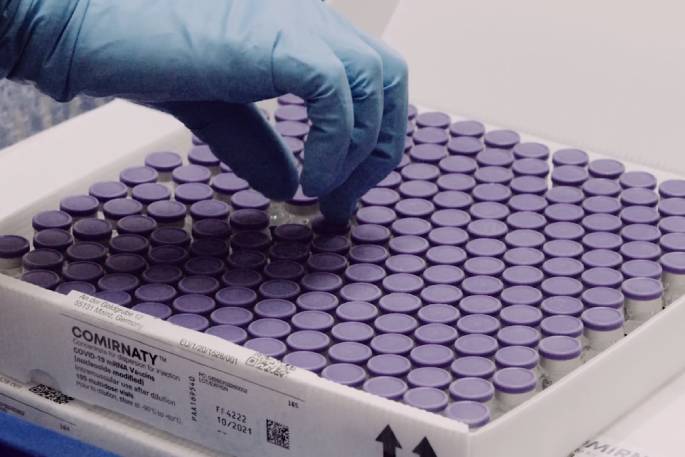World Health Organisation spokesperson Dr Margaret Harris says the Covid-19 Omicron variant has "many more mutations" but it is yet to be found to be more severe than previous variants.
It is less than two weeks since Omicron was designated a "variant of concern" by the World Health Organisation, after it was first reported by scientists in South Africa.
Thirty-eight countries have now reported cases: overnight the UK reported another 86 Omicron infections, the US now has cases in 15 states and Australia has 17 cases in New South Wales and ACT.
The designation prompted many countries – including New Zealand – to shut their borders to travellers arriving from a number of southern African nations.
The emergence of Omicron resulted in a significant rise in case numbers in South Africa which has led to suggestions the variant could be more transmissible than others.
Australian public health physician and spokesperson for the World Health Organisation, Dr Margaret Harris, says the variants' unique mutations have yet to prove more severe than others.
"It's got many more mutations than we've seen in other variants and a lot of those mutations are in the spike protein area and that's the bit that the virus uses to get into our cells, it's also the bit we target with vaccines.
"If these things give it an advantage it would be a very concerning virus, however, we haven't seen any proof of that yet," Margaret says.
Many Omicron cases in South Africa had been found in the younger population, leaving a caveat in the understanding of the variant's severity amongst the wider society.
Further laboratory work was needed to determine whether or not the variant was capable of escaping the immunity provided by Covid-19 vaccines, she says.
However, there was reason to be confident that vaccines will hold up against the new variant.
"Even with other variants that have looked in the laboratory like they could have good immune escape we have seen that the vaccines have held up against them, so, we've got lots of reason to be confident."
She outlines two options vaccine manufacturers could take if Omicron is found to have significant resistance to vaccines.
"You could tweak it (the vaccine) and offer it as an extra dose, which would be a genuine booster dose that would be a different but single vaccine ... or worst-case scenario you may end up developing another vaccine.
"But we expect that it would be more like the flu situation whereas it changes we might change the vaccine slightly and give that as required."
She expects additional specific information on the variant to be provided in the next week.
British scientist Professor Mark Woolhouse recently said the UK's border rules were "too late" to make a difference to the potential wave of Omicron.
Margaret says the WHO did not encourage blanket travel bans but was instead urging countries to ramp up testing and manage the quarantine of positive cases.
While some countries considered vaccine mandates for the entire eligible population the WHO continued to push for a community-focused initiative, Margaret says.
"We do prefer that vaccination is something that you do in partnership with your community and it's a voluntary thing but we do understand that governments get to a point in the middle of a pandemic like this where if their biggest struggle is dealing with a large chunk of the population who are not vaccinated and you're seeing those people in hospital then you may make decisions, short-term ideally but decisions that can limit the exposure by increasing vaccination."
She says the WHO had previously warned that an inequitable global vaccine rollout could lead to the development of new variants in under-resourced countries.
"As we've been saying all year that vaccine inequity is likely to lead to the development of variants in populations that have not had the opportunity to be vaccinated and we are seeing that with this one.
"With the previous variants they did arise before vaccinations were available so this is really the first one that has arisen since the vaccines became a tool that could and should have been widely used and used in a step-wise manner."
Margaret says vaccines should first have been administered to the most at-risk populations around the world instead of well-resourced countries focusing efforts on vaccinating their entire population.
The WHO had asked developed countries to delay the rollout of booster vaccine shots until the majority of unvaccinated countries had the chance to progress their vaccination programmes.
She says there appeared to be an attitude of ignorance towards the serious loss of life the Covid-19 pandemic has caused.
"People think oh well it's not my problem it doesn't affect me, even though we've had such horrendous losses.
"We're talking about five million reported deaths but our estimates suggest really closer to 15 million people have died – we haven't had anything that's created such a terrible toll in our lifetime and yet I still get the feeling that people think it's somebody else's problem."
Margaret says people need to understand that governments want their populations vaccinated because health systems simply cannot cope with the pressure that comes with providing care for an unvaccinated population.



0 comments
Leave a Comment
You must be logged in to make a comment.